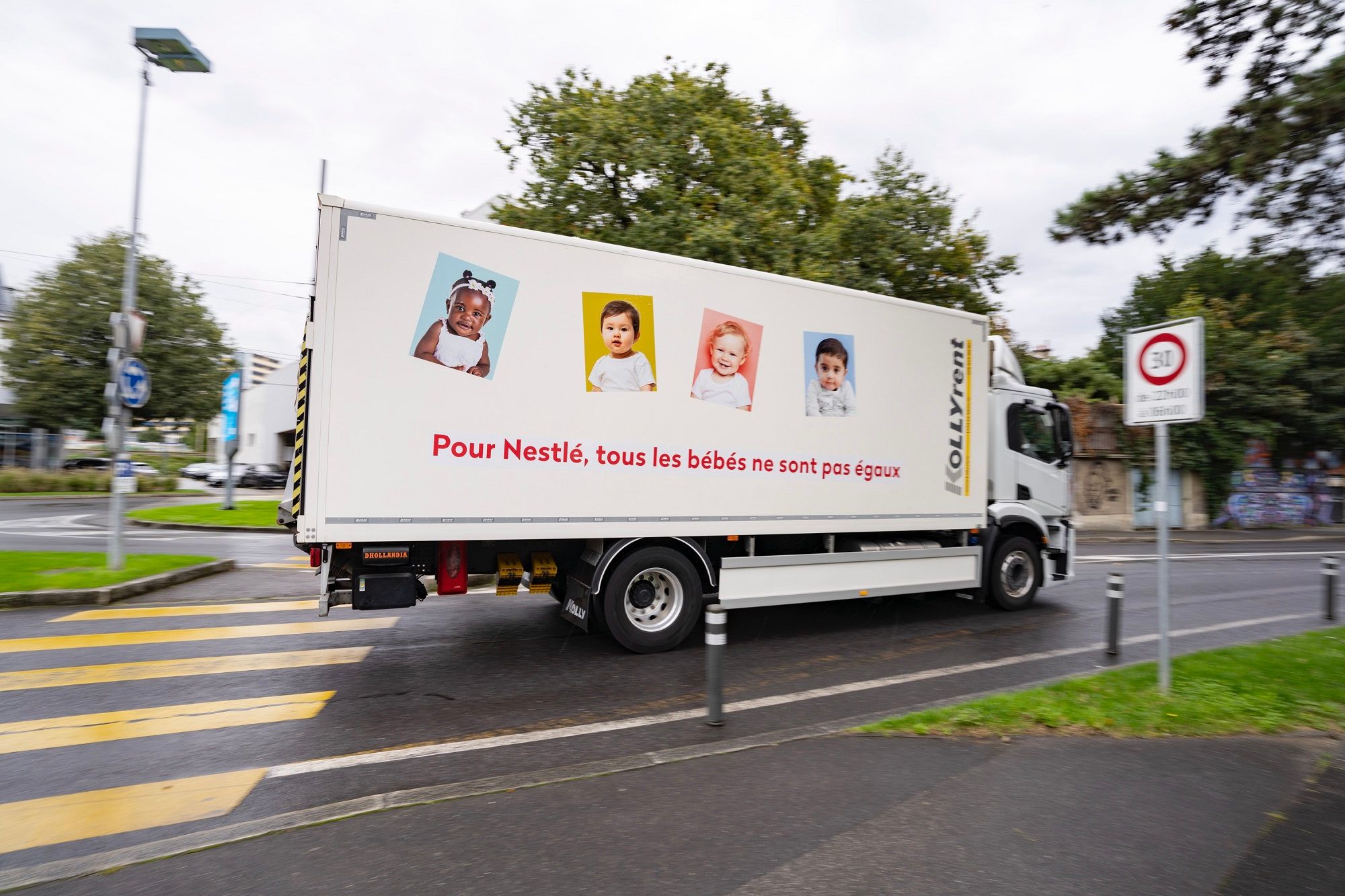Protest at Vevey: more than 100,000 signatures against Nestlé’s double standard over added sugar in baby food
Lausanne, Zurich, October 1, 2024
 ©
Martin Bichsel
©
Martin Bichsel
A truck displaying the slogan “For Nestlé, not all babies are equal” drove up Avenue Nestlé in Vevey this afternoon, accompanied by the fascinated looks of passers-by. It was carrying 40 m3 of empty boxes representing 10 million sugar cubes, the amount of added sugar contained in Cerelac baby products sold each day in low- and middle-income countries. Public Eye and its partners, the International Baby Food Action Network (IBFAN) and EKO are calling with this “return to sender” action on the food giant to end the outrageous double standard revealed by our investigation last April. A petition signed by more than 105,000 people was also delivered to the company’s representatives.
Two of Nestlé’s best-selling baby food brands in low- and middle-income countries – Cerelac infant cereals and Nido growing-up milks – contain high levels of added sugar, while such Nestlé products have no added sugar in Switzerland. The company aggressively promotes these products as healthy and key to supporting young children’s development, in its main markets in Africa, Asia and Latin America. But exposure to sweetened foods early in life can create a life-long preference for sugary products, increasing the risk of developing obesity and numerous related health issues, such as diabetes or cardiovascular disease. This is why the World Health Organization bans the addition of sugar to baby food.
Our investigation sparked a wave of indignation around the world and prompted Indian, Bangladeshi and Nigerian authorities to launch investigations, while calls for a boycott have increased on social networks. In June, Public Eye and IBFAN called on the Swiss State Secretariat for Economic Affairs to end these unethical business practices, which also damage Switzerland’s reputation. To this day, Nestlé still hides behind compliance with current regulations. The multinational highlights its efforts to gradually reduce sugar in its products, as well as the introduction of alternatives with no added sugar in certain markets, as announced in India. However, these half-measures are inadequate and perpetuate a double standard with devastating consequences for public health.
Pictures from Vevey can be downloaded here.
For more information contact:
Oliver Classen, Spokesperson, +41 76 334 42 25, oliver.classen@publiceye.ch
Laurent Gaberell, Agriculture and Food Expert, +41 78 204 50 60, laurent.gaberell@publiceye.ch

